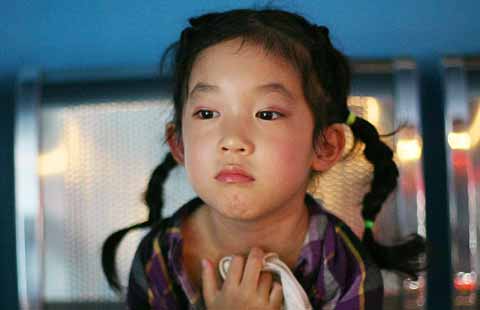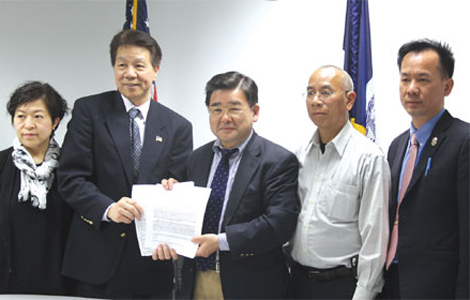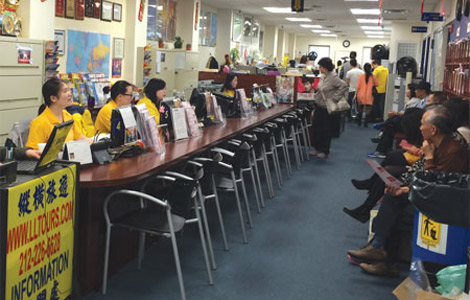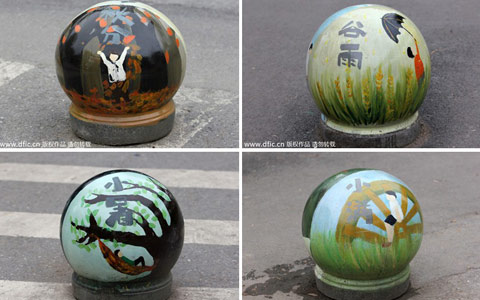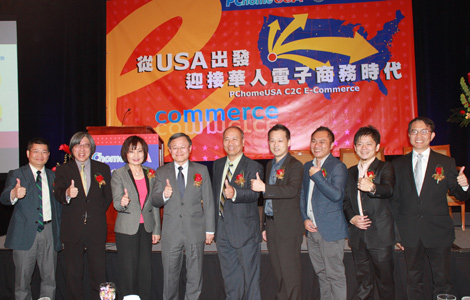Chinese Parents: For some, it's 'Harvard, Harvard, Harvard'
Updated: 2014-05-06 10:22
By AMY HE in New York (China Daily USA)
|
||||||||
They are among the top schools in the Ivy League. Yale University took one student.
Yale and Princeton University accepted two other students, a brother and sister.
Other than getting into some of the most sought-after universities in the United States, what the three had in common was that their parents are Chinese, all had done extensive prep work to get into their dream college, and all three rejected those universities for the school they really wanted - Harvard University.
"Chinese parents only know Harvard, Harvard, Harvard," said the owner of a small, private tutoring service that helps children from low-income Chinese families prepare for various college standardized tests, like the SATs and the SAT subject tests.
"Parents come to me and say, 'Our child must get into Harvard. They must get into Harvard, we don't want them to go anywhere else,'" said the owner, who declined to be named.
She has been working with high school students for nearly a decade, hiring teachers to help classes of 15 to 20 students prepare for the SAT exams. Most of the students that attend the SAT classes in Brooklyn began preparing as early as their freshman year of high school.
"Particularly for the Chinese who come to the United States, it's only Harvard. It's as if there are no good schools other than Harvard," she said. "I tell these parents, there are so many good schools in the US, but they don't even know schools like Dartmouth or Vanderbilt. Obsessing over Harvard is almost a Chinese tradition now."
Some trace that obsession back to 2000 when Harvard University and Liu Yiting became household names across China after Liu's parents published a book chronicling how their parenting style led to their daughter's admission to Harvard. Harvard Girl sold millions of copies in China and detailed Liu's disciplined upbringing and how she became one of the first Chinese undergraduates to attend Harvard on a full scholarship.
The book led to many copycat titles, with different parents trying their hand at detailing their own parenting styles and how it led to their childrens' admissions to other prestigious higher education institutions.
Bev Taylor, the founder of college counseling service The Ivy Coach, works with parents and their children to get them into the schools of their choice. She helped the family whose daughter and son were accepted by Yale and Princeton.
"They weren't done. They wanted Harvard. Why it was Harvard? I don't know. What's wrong with Princeton, what's wrong with Yale? And why would you go through that? What's so different?" she said. "A lot of it is bragging rights so mommy and daddy can say they have one kid at Harvard and one kid at Princeton, instead of saying they have two kids at Princeton."
Taylor said that about 85 percent of her clients are Chinese and Indian. They pay $995 an hour for Ivy Coach's services, which range from helping with personal essays to reviewing applications to see where students can improve them and make them stand out.
Billie Wei, who almost finishes up with her first year at Harvard, has been going to cram schools on and off since elementary school, her dad, who declined to be named, told China Daily.
She went to Ivy Prep, one of the most well-known Chinese cram schools in New York. As for her turning down Yale, "she just couldn't let go of the reputation of Harvard," said her father, who said going to the Cambridge, Massachusetts, school was her decision.
There are 722 students from China studying across all of Harvard's colleges, more than 300 of whom go to the Graduate School of Arts and Sciences, with the rest in undergraduate and other graduate programs.
"The number of students from China studying across Harvard University has increased significantly in recent decades," said Jeff Neal, director of communications at Harvard. The number of students from China attending Harvard has increased threefold since the mid-1990s, according to the school.
Harvard doesn't break down applicants by country, but Neal said that the number of applicants from China to the undergraduate program has also grown during that time period, "though at a much slower rate".
amyhe@chinadailyusa.com
Most Viewed
Editor's Picks
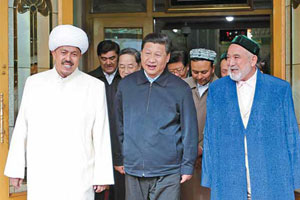
|
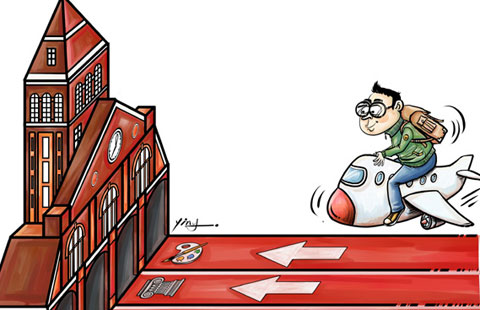
|

|

|

|

|
Today's Top News
Oversight of GM crop samples to be boosted
For some Chinese parents, it's 'Harvard, Harvard, Harvard'
China, AU to deepen comprehensive co-op
Chinese man killed in car crash
Skin rash patients hardest hit by nudity ban
Subsidy to offset rising prices
Ukraine moves forces to Odessa
Disclosure of military secrets becoming bigger risk
US Weekly

|

|

